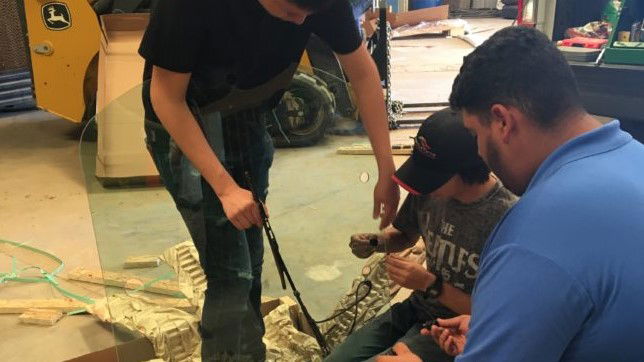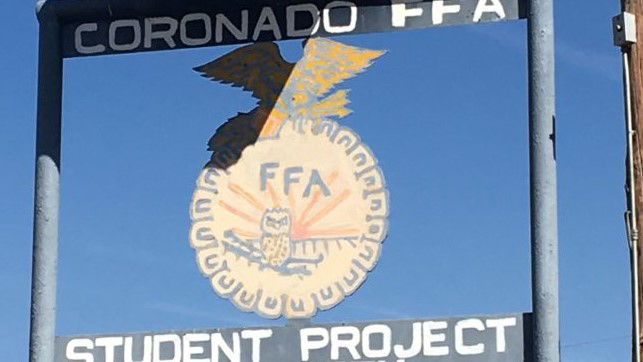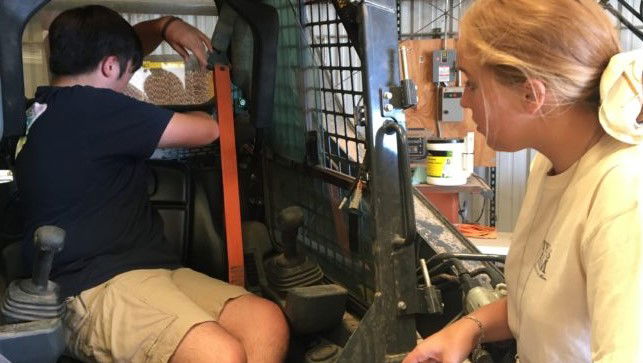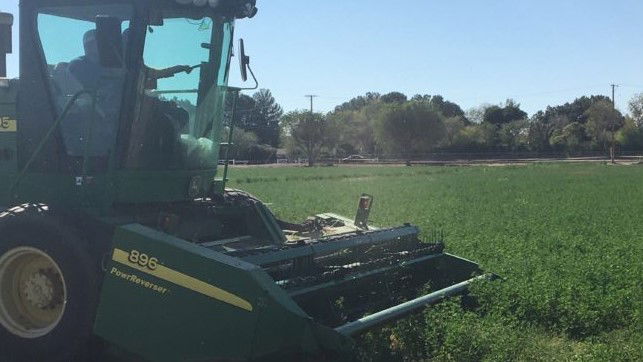El Paso farmers fear food shortages as urban sprawl eats millions of acres in the Borderland and beyond






EL PASO, Texas - According to the most recent census from the American Farmland Trust, the United States lost over 67,000 farms and more than 14.3 million acres of land between 2012 to 2017.
The data says that farming numbers are on the decline, both nationally and across the Borderland.
It's a concerning trend that local farmers have already been well aware of for years.
"The farming community used to be from Ysleta on," said Guadalupe Ramirez Jr. III who owns and operates the Ramirez Pecan Farm. "That all used to be different cotton fields. It is moving further and further out and it is shrinking. It is a little bit of both."
That same census shows Texas as one of the nation's biggest pecan growers, with El Paso as the state's second largest contributor while New Mexico is also a top 3 state for pecan production.
But the profitability of that business has also taken a hit due to recent trade wars between the U.S. and China.
"China is one of America's biggest pecan buyers," said Ramirez. "They are not buying from the United States anymore. They are now buying from other people who have started growing pecans. Mexico has started their own orchards, so China is going to go straight to Mexico and the big pecan growers are losing millions."
That particular situation got so bad that in November of 2019, the National Pecan Federation was joined by 14 other specialty crop agricultural organizations in writing an open letter to U.S. Trade Representative Robert Lighthizer.
In that letter, Lighthizer was asked to consider the damage being done to American farmers by the continued high tariffs being placed on U.S. agricultural products entering the Chinese market.
That letter said in part:
"The most immediate and urgent need of the industry is to have the excessive tariffs lifted, allowing high value specialty crops to move freely back into China and take back lost shelf space from foreign competitors. China has been a top export destination where American-grown product is highly valued. Unfortunately, the ever-increasing retaliatory tariffs have drastically pushed up rates, costing farmers hundreds of millions in lost sales and decreased exports. Moreover, the lack of export movement forces more product to stay in the United States, inflating domestic supply and hurting prices at home."
Pecan orchards and cotton fields primarily dominate two parts of the Borderland.
The Clint, Fabens, Tornillo and Soccoro corridor to the southeast and
across the Mesilla Valley heading west out toward New Mexico.
But the amount of farmland in those areas has continually shrunk over the last two decades.
That shrinkage is mostly due to development, according to the Water Improvement District, adding while El Paso had about 70,000 acres of irrigated farmland back in 1916, today it is down to a little under 35,000.
"We used to have so much more farming around the lower valley," said Senator José Rodríguez, who represents El Paso's 29th district. "As we have seen the population growth towards the east of El Paso and down into the lower valley, more land is being taken out of farming circulation."
Farming on both the local and national stage has also been badly hurt by a growing generational gap, with fewer children stepping up to work the land that was first raised by their parents and grandparents.
Armando Flores is a man on a mission, working to fill that generation gap with promising future farmers.
For years, Flores has worked as an agricultural instructor with the Future Farmers of America program at Coronado High School.
"These fields represent the most hands on education that a student can get in a high school setting," said Flores. "There are no classrooms, this whole farm setting is the classroom."
Through his training, Flores prepares about about 15 students per year for the food production industry.
"When I met Armando Flores, he brought me into this program and showed me a couple different things and I really started to enjoy it," said Coronado High school Junior Jacob Etter.
Students certainly get their hands dirty, driving tractors, handling live stock and producing alfalfa crops.
"I found this beautiful program that I have thrived in and I just can't steer away from," said junior Kathryn Goodrich.
Those facilities that the students work includes a 36-acre alfalfa farm.
Students are eager to contribute but Flores wonders if they will be enough.
"These days, each farmer is responsible for feeding 200 people," said Flores. "Those numbers are just absolutely crazy."
The growing disparity between national food demands and the number of available food producers is something that often keeps Armando awake at night.
"I've got a little baby girl at home and every single day I think about it," said Flores. "Whats next? Who is going to be next if we are not feeding the world? It may not be a crisis in my life time but it is coming whether you like it or not."
In addition to Coronado High School, Canutillo Middle School recently broke ground on a similar, albeit smaller, farming project in the form of a 9,000 square-foot multi-purpose Agricultural Science Facility.
In 2017, El Paso recorded 656 farms, similar to previous surveys.
El Paso recorded 600 farms back in 2002 but while that overall number has held steady, the census also says that the average El Paso farm has become 32% smaller since 2012.
